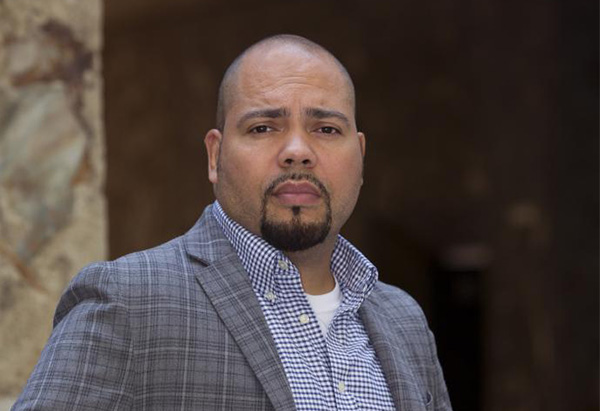 Sacramento State Professor Julian Vasquez Heilig is included on a list of distringuished educators. (Sacramento State)
Sacramento State Professor Julian Vasquez Heilig is included on a list of distringuished educators. (Sacramento State)A Sacramento State professor has been named among the nation’s most influential on issues of education policy.
Julian Vasquez Heilig, professor and director of the Doctorate in Educational Leadership program, has been named to the 2018 Edu-Scholar Public Influence Rankings, compiled annually by American Enterprise Institute Director of Education Policy Frederick M. Hess. The list recognizes university-based scholars who shape public discussions of education by doing the most to move ideas from academic journals into the national conversation.
Of the tens of thousands of academics who qualify, only 200 make the list. Heilig is the only member from a California State University.
“It’s a real honor to be on the list with so many incredible scholars, and it’s a real honor to represent Cal State on this list,” Heilig said. “As a teaching university and a university that’s committed to engagement, Cal State is the perfect place to do this kind of work.”
The rankings reflect both the influence of an individual’s academic scholarship and their influence on public debate as reflected in old and new media. Nine publicly available metrics are used: Google Scholar, book points, highest Amazon ranking, syllabus points, education press mentions, web mentions, newspaper mentions, congressional record mentions, and Klout score.
“One small way to encourage academics to step into the fray and revisit academic norms is, I think, by doing more to recognize and value those scholars who engage in public discourse,” Hess said in a news release. “These results offer insight into how scholars in a field of public concern are influencing thinking and the national discourse.”
Heilig ranked particularly highly in Klout Score, with just two scholars earning a higher rating than him. The mark reflects the effort he and the doctoral program have made to use traditional and social media to spread the word about research as well as faculty and student accomplishments. Heilig’s blog, Cloaking Inequality, has been read by nearly 1 million people in 200 countries, and small brown bag discussions are recorded and streamed by as many as 10,000 people worldwide. He and the department also work to ensure that research is disseminated in a variety of ways, including policy briefs, tweets, and short videos on YouTube and Facebook Live, using language accessible to the average person.
“By using these knowledge-mobilization strategies, what we’re able to do is make the very important work that professors and students are doing readily available statewide, nationally and internationally, nearly instantaneously, and doing it in ways that engage the public,” he said.
Heilig’s online presence was also recently recognized by Education Next, where he ranked eighth on the journal’s “Top Education Policy People on Social Media” list, which includes not just academics but anyone involved in education policy.
Visit the website to learn more about Sacramento State’s Doctorate in Educational Leadership program. - Jonathan Morales
